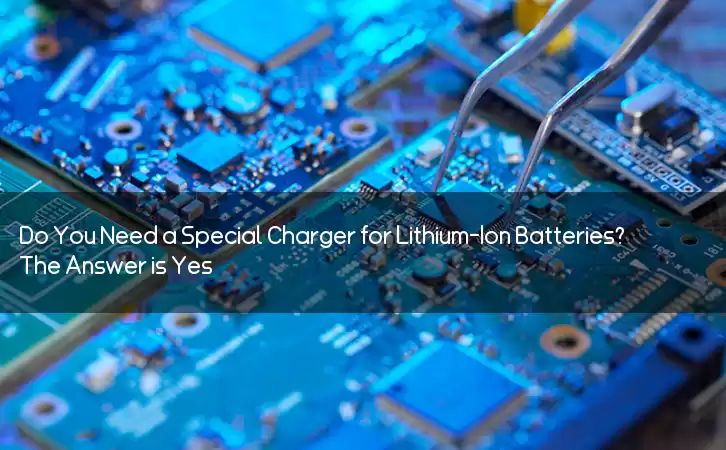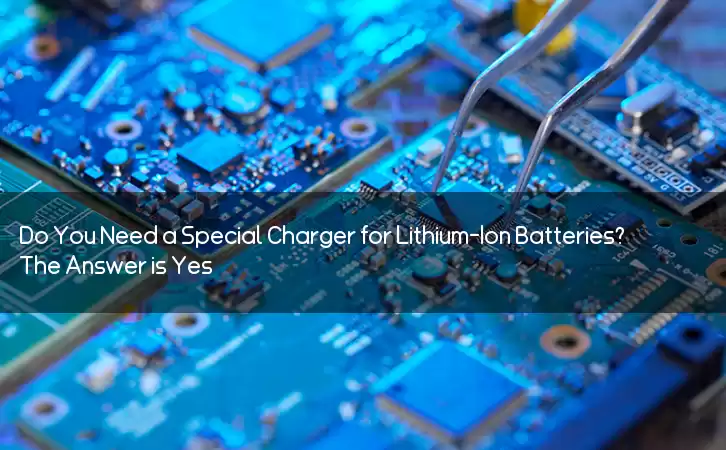Information Center
Do You Need a Special Charger for Lithium-Ion Batteries? The Answer is Yes!
Published:2023-07-14 20:34:35 Author:Green WCND Views:54Lithium-ion batteries have revolutionized the world of portable electronics, powering everything from smartphones to electric cars. They have become the preferred choice of battery technology because of their high energy density, long lifespan, and low self-discharge rate. However, one question that often arises is whether lithium-ion batteries require a special charger.

The short answer is yes; lithium-ion batteries do need a special charger. Unlike other rechargeable batteries, lithium-ion batteries require a specific voltage and current to charge. If they are overcharged or charged too quickly, they can become unstable and potentially dangerous.

Most lithium-ion batteries have a built-in protection circuit that prevents overcharging and excessive discharge. However, these protection circuits are not foolproof and can fail if the battery is not charged correctly. Therefore, it is essential to use a charger that is designed specifically for lithium-ion batteries to ensure safe and proper charging.
So what makes a charger "special" for lithium-ion batteries? Firstly, it must provide the correct voltage and current. The voltage has to be within a specific range, usually between 3.6 to 4.2 volts per cell for most lithium-ion batteries. The current, on the other hand, has to be within the battery’s acceptable charging rate. The charging rate is expressed in amps or milliamps (mA) and can be found in the battery’s specifications.
Secondly, a lithium-ion battery charger must be able to detect when the battery is fully charged and stop sending energy to it. Overcharging can cause the battery to overheat, which can lead to a thermal runaway, resulting in a fire or explosion. A lithium-ion battery charger that can detect when the battery is full and stop charging it is called a "smart" charger.
Thirdly, a charger for lithium-ion batteries must be compatible with the specific type and size of the battery being charged. Some batteries have a different number of cells, requiring different charging voltages and currents. Also, some batteries have different connectors, meaning the charger needs to have the correct connection options.
It is important to note that using a charger that is not designed for lithium-ion batteries can be dangerous. Using the wrong charger can damage the battery, reduce its lifespan, or cause a fire or explosion. It is always best to use the charger that comes with the device or a manufacturer-recommended replacement.
In conclusion, lithium-ion batteries require a special charger to ensure safe and proper charging. A charger for lithium-ion batteries must provide the correct voltage and current, have the ability to detect when the battery is full, and be compatible with the specific type and size of the battery being charged. Using the wrong charger can damage the battery and pose a serious safety hazard. Therefore, always use the charger that comes with the device or a manufacturer-recommended replacement.
Power Adapter Design and Customization Guide for Portable Electric KettlesI. Common Design Types for Portable Electric Kettle Power AdaptersPortable electric ke···
I. Common Design Types of Power Adapters External Independent Type (Most Common) Design: A standalone adapter (e.g., "black brick") connected to the p···
Handheld Vacuum Cleaner Power Adapter Selection GuideIntroductionHandheld vacuum cleaners have become a mainstream tool for household cleaning due to their port···
Drill Power Adapter Selection Guide.drill-container { font-family: Arial, sans-serif; line-height: 1.6; max-width: 800px; margin: 0 auto; padding: 20px; } .dril···





